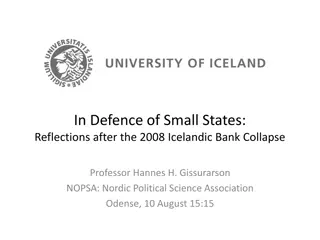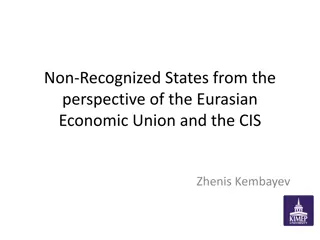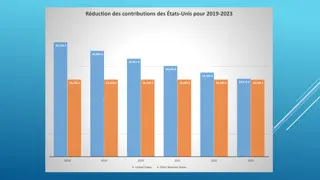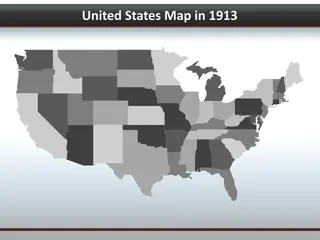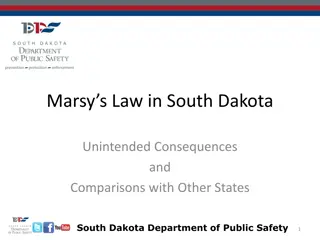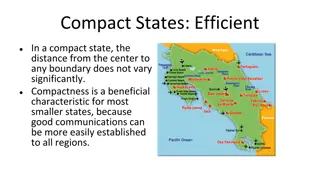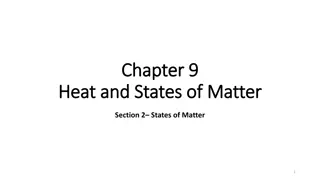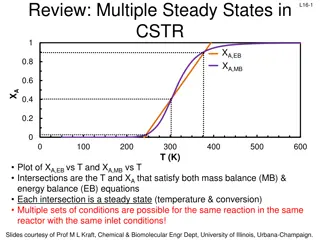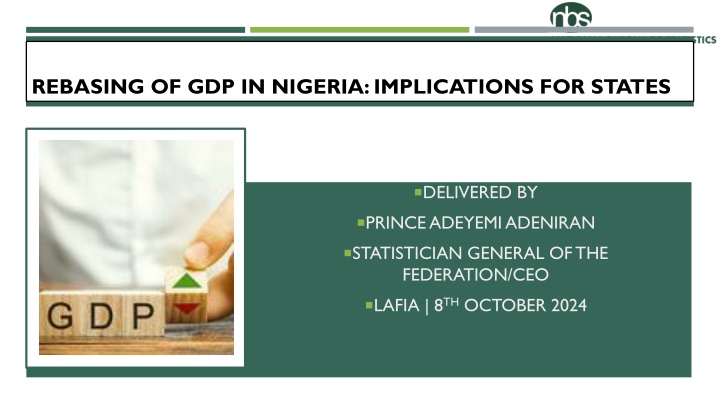
Rebasing of GDP in Nigeria: Implications for States
"Learn about the process of rebasing GDP in Nigeria, its significance, theoretical framework, methodology, and implications for states. Explore the challenges and conclusions of this crucial economic exercise for informed decision-making."
Download Presentation

Please find below an Image/Link to download the presentation.
The content on the website is provided AS IS for your information and personal use only. It may not be sold, licensed, or shared on other websites without obtaining consent from the author. If you encounter any issues during the download, it is possible that the publisher has removed the file from their server.
You are allowed to download the files provided on this website for personal or commercial use, subject to the condition that they are used lawfully. All files are the property of their respective owners.
The content on the website is provided AS IS for your information and personal use only. It may not be sold, licensed, or shared on other websites without obtaining consent from the author.
E N D
Presentation Transcript
REBASING OF GDP IN NIGERIA: IMPLICATIONS FOR STATES DELIVERED BY PRINCE ADEYEMI ADENIRAN STATISTICIAN GENERAL OF THE FEDERATION/CEO LAFIA | 8TH OCTOBER 2024
OUTLINE Introduction Significance of GDP Rebasing Theoretical Framework and Methodology Choice of Base Year Data Sources Implications for States in the Context of GDP Rebasing Challenges Conclusion
INTRODUCTION NBS is finalizing the process of rebasing the GDP estimates for the nation. GDP rebasing is the process of updating the base year used to calculate the country's GDP. This involves recalculating GDP figures using current prices and weights, rather than those from an older base year. It is an internationally recognized practice conducted by all National Statistics Offices (NSO) across the globe as recommended by the United Nations Statistical Commission It is recommended that this exercise is carried out every five years to reflect the changes in economic activities
SIGNIFICANCE OF GDP REBASING First, it allows us to accurately measure the Economy, reflecting the realities of the current structure and composition of the economy. It aids Policy Formulation, enablingpolicymakers to make informed decisions about economic policies, such as fiscal and monetary measures that need to be adopted to maintain and stable and growing economy. It serves as a critical tool for Investment and Development decision-making. Internationally, rebasing allows for more meaningful comparisons of GDP across countries.
THEORETICAL FRAMEWORK AND METHODOLOGY The rebasing of GDP is best achieved through the compilation of the Supply and Use Table (SUT). A Supply and Use Table is a statistical matrix that provides a detailed picture of the production, consumption, and trade of goods and services within an economy. It is a crucial tool for economic analysis, policymaking, and understanding the interdependencies between different sectors of the economy. The SUT is organized into rows and columns, with the Rows representing the supply side of the economy, including domestic production, imports, and changes in inventories. The columns represent the demand side of the economy, including final consumption, intermediate consumption, capital formation, and exports.
THEORETICAL FRAMEWORK AND METHODOLOGY The population of the SUT is done with the guidance of the following: the International Standard Industrial Classification of Economic Activities (ISIC Rev 4), and the Classification of Products by Activity (CPA ver. 2.1). System of National Accounts 2008, The dimensions of the SUT being used for Nigeria consist of 46 industries and 217 products.
The current base year for the GDP series is 2010, which was arrived at during the last rebasing exercise in 2014. The ongoing process has chosen a new base year of 2019. CHOICE OF BASE YEAR This implies that the price and weight structure upon which the national GDP will be measured going forward will be based on the year 2019. This was arrived at after due consideration of several factors such as the general economic stability, the effect of COVID-19, the availability of administrative data, and the conduct of several landmark surveys and data collection activities.
DATA SOURCES AND SPECIAL STUDIES The data for the Ongoing GDP Rebasing were sourced from the following: Nigeria Living Standard Survey (NLSS) 2018/2019 Provides data for household expenditure and the informal sector The National Business Survey of Establishments (NBSE, 2021) National Agriculture Sample Census (NASC,2022) To complement the survey data, Special studies were conducted in some specific activities such as: Research and Development (R&D) Water Supply, Waste Management, Sewerage and Remediation Trade and Transport Margin
IMPROVEMENTS ON DATA COLLECTION Water Transport [Marine and Blue Economy] New data sourced from: NIWA, NPA, NIMASA and Shippers Council Ministry of Arts, Culture and Creative Economy New data sources from new Ministry Ministry of Tourism New data sources from new Ministry
NEW DATA SOURCES Measurement of Digital Economic activities Incorporation of Pension Funds National Health Insurance Scheme [NHIS] Nigerian Social Insurance Trust Fund [NSITF] Modular Refineries Domestic Households as Employers of Labour Drugs data (farming, production and trade)
IMPLICATIONS FOR STATES IN THE CONTEXT OF GDP REBASING It provides States with a more accurate picture of the economic activities and sectoral contributions to the economy in each state. It will help them to understand the structure of their states and the activities that are driving the State s economy. With the knowledge and understanding of the economic structures, states can plan appropriately
IMPLICATIONS FOR STATES IN THE CONTEXT OF GDP REBASING The Rebasing has implications for Resource Allocation to States and within States. the rebasing of GDP will have implications in attracting private investment capital to states, particularly foreign direct investment. It will enhance States ability to drive up their revenues and tax-to-GDP ratio The Rebasing of GDP and the production of State GDP presents states with the ability and opportunity for comparison and collaboration among themselves.
Challenges Underground and illegal activities Financial Constraints Book-keeping Culture
CONCLUSIONS GDP rebasing is considered a very important statistical exercise for a nation It requires full commitment/cooperations of relevant departments within the Bureau and external stakeholders such as MDAs/Private Sector/donors etc The Bureau plans to disseminate the results as soon as possible









